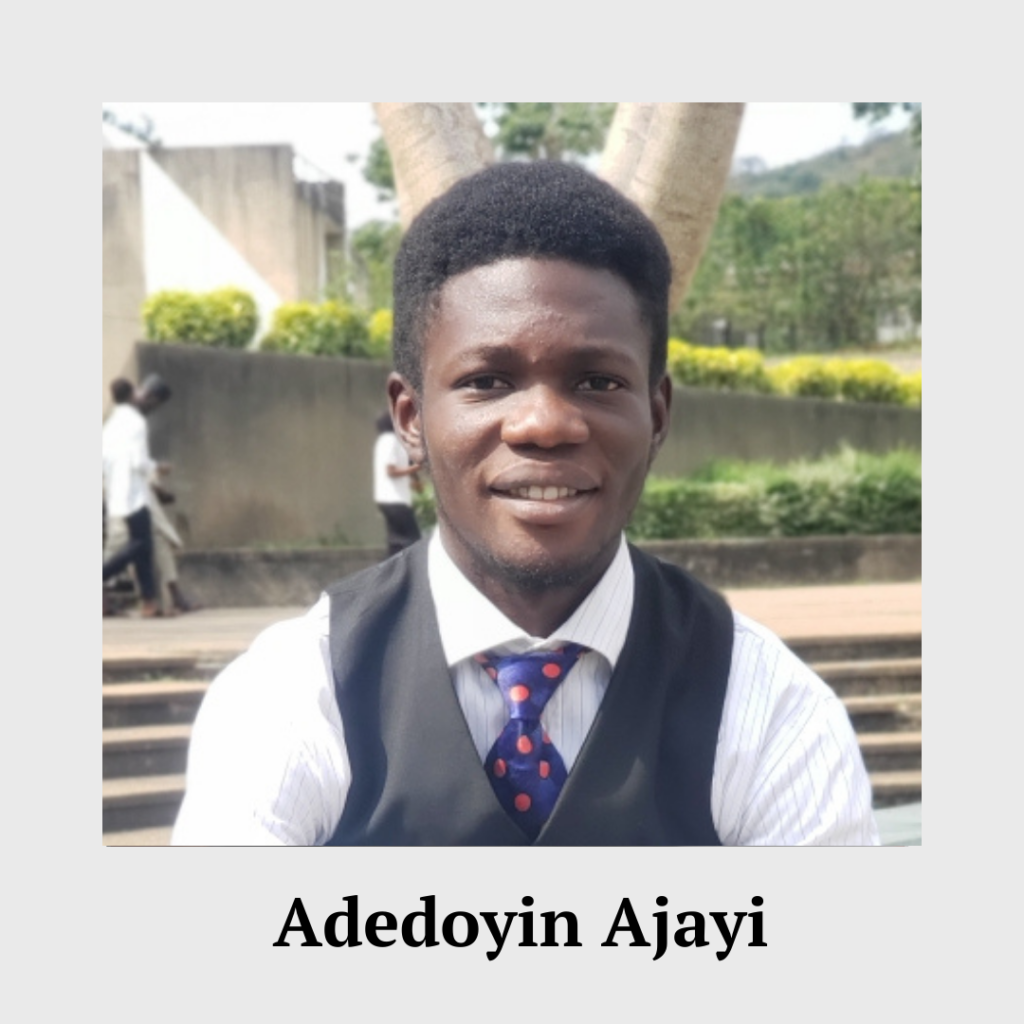Still no Classes for University Students
August 14
University students in Nigeria have had no classes for the last six months. The closure of their university campuses is not because of COVID-19 but as a result of a dispute between the government and the university lecturers represented by The Academic Staff Union of Universities (ASUU). This round of industrial action comes after a 10-month-long strike in 2020 over pay and working conditions. 25 year old Adedoyin Ajayi, a Commonwealth Correspondent from Nigeria highlights the detrimental effects of the strike on Nigeria’s university students.
Ordinarily, the graduation of a student from a tertiary institution is celebrated. However, when Jordan Nyesom-Wike, the son of Rivers State Governor, Nyesom Wike, bagged a second-class upper degree in Law from the University of Exeter, UK, pictures of his family at his graduation posted on social media sparked mass fury among enraged Nigerians, who used that as a stick to beat the current administration with, and vent their frustrations with the state of tertiary institutions in the country.
The Academic Staff Union of Universities (ASUU) went on strike on February 14, 2022, the latest in a long line of previous strikes ranging from a few weeks to several months. The result has been disgruntled youths who have been left kicking their heels at home, learning online courses, opting for internships or brushing up their entrepreneurial skills while they count the cost of yet another academic year gone by.
Ogechi Job, a Sociology and Anthropology student at Obafemi Awolowo University, Ile-Ife, expressed her annoyance at the strike, stating that it has left her feeling nonserious. She would rather school resumes than opt to do vocational training.
“I’m going to school because I don’t want to do these things in the first place. I’m supposed to spend four years in school, I’m in my third year and nowhere near done,” the 22-year-old said.
For Benamin Adeniji, aged 22, who’s studying economics in the same institution, the effects of the strike are colossal – wasted time, prolonged schooling, delayed dreams and a nagging sense of idleness before he got busy with some entrepreneurial activities. To him, venturing into business during the time his university has been closed is the only positive to emerge from the strike. Nevertheless, he strongly acknowledges that his entrepreneurial activities pale in comparison to his schooling.
“Money can always be made one way or the other. Schooling has no alternative,” he declared. “If I’m not working here, I can work online or in another place. But if we’re on strike, we’re on strike. That’s four years of my university education being placed on hold.”
In an article in the Nigerian Guardian ASUU President, Prof. Emmanuel Osodeke is quoted explaining the union’s ₦1.1tr. demand: “We’re not saying give ASUU this money; we are saying refurbish Nigerian universities in such a way that it can attract students from all over the world. That’s the major thing we are asking for. It’s not about ASUU.”
He added, “We’re asking for that money for Nigerian students, and Nigerian parents. The money is for building infrastructure, upgrading libraries, hostels, and lecture theatres so that students will not be having lectures through windows; so that students will not be sitting on the floor during lectures. That’s what we are asking for.”
It is worth stating that in 1990, UNESCO recommended that 20% to 25% of national budgets be allocated to education. From 2016 and 2021, the fraction of the budget allocated to education in Nigeria has hovered between 6% and 7%. With such low funding dedicated to education, it is little wonder that tertiary institutions are saddled with poorly-equipped laboratories, overcrowded lecture halls and a brain drain. The government’s apathetic attitude to this state of affairs in Nigeria’s universities is a source of annoyance for Nigerians.
Benamin notes that the government’s attitude to the incessant strikes has been “nonchalant.”There is the perception that this indifference largely stems from the fact that government officials have the means to school their children in countries with educational institutions that are well resourced. In Ogechi’s words, “Their kids don’t get their schooling in the country, plus they have elections, so to hell with us,” she notes, sadly. This sentiment was what provoked the wrath aimed at Jordan Nyesom-Wike, Rivers State Governor’s son.
In matters such as these, the guilty party might look clear, but to Ogechi, both parties share the blame, as she believes that either way, the lecturers will inevitably get paid, while students cannot get back the many months they’ve lost in this standoff between the federal government and the ASUU.
Despite the protracted strikes, both Ogechi and Benamin disagree that “school na scam,” a popular slang among Nigerian youths, which translates to “school is a scam.” They both agree that while education is a beautiful thing, the state of affairs in the country sours it. “The system here in Nigeria makes it discouraging,” Benamin notes.
As negotiations between ASUU and the government continue, students wait with folded arms, hoping for a favourable outcome for all parties and the nation at large.
Photo Credits: Canva
About Adedoyin Ajayi: He studied Economics from Obafemi Awolowo University, Ile-Ife, Nigeria and graduated with first class honours. He likes reading and writing on issues pertaining to developing countries. He has published two academic papers on tourism and its interrelated factors in MINT countries (Mexico, Indonesia, Nigeria and Turkey). In addition to academic papers, he loves creative writing, and some of his literary works have been published in online African literary journals like Brittle Paper. He aims to further his education with a postgraduate degree in Development Economics.






